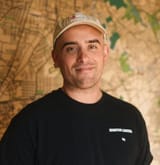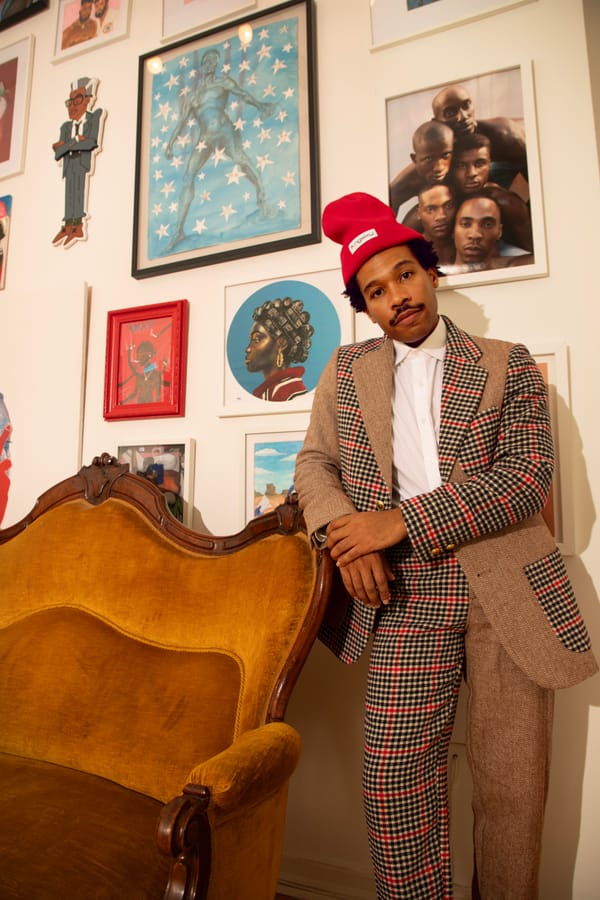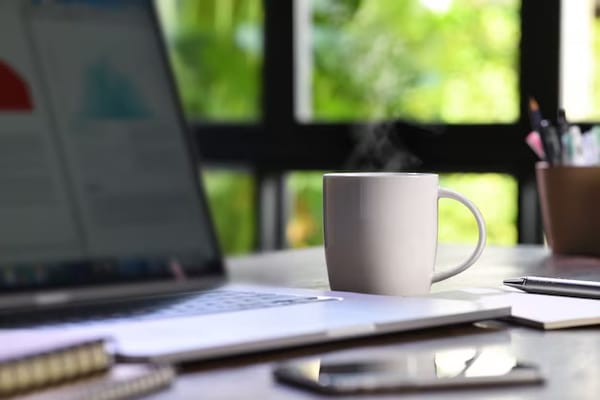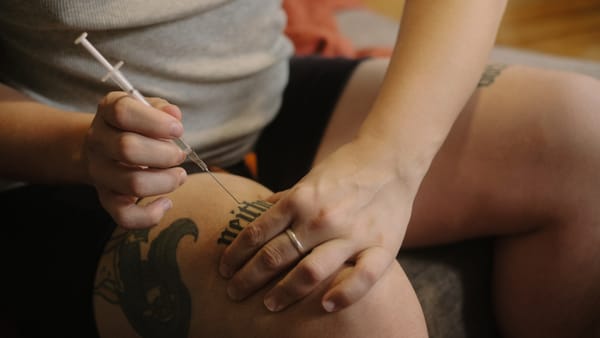Polaroid photographer captures queer life in the 'Rudest' of ways
Ryan Rudewicz, founder of Rude Polaroids, captures life, love and art through nudes and nostalgic nods to queer history.

For decades, Polaroid photography has captured the imagination of artists. Since their inception in 1948, visionaries like Andy Warhol, Maripol, and Walker Evans have used them to chronicle a wide range of subjects: from pop culture phenomena and the world of fashion to the very essence of small-town America.
For the last three years, photographer Ryan Rudewicz has kept up the age-old tradition of capturing life, love and art through nudes and nostalgic nods to queer history. The Cape Cod native can be found bouncing between bars in Brooklyn, camera in hand, or setting up solo gallery shows in Provincetown, displaying his fine arts side.
“I love being able to hold a picture,” he said. “We don't get to do that a lot now. We all have cameras in our pockets, but then I take a few pics and never see them again. They're up in the Cloud forever.”
Rudewicz, the founder of Rude Polaroids, has been immersed in the arts since his early years. Growing up, he actively engaged in theater and eventually relocated to the vibrant city of New York to further pursue his theatrical endeavors. Despite his continuous involvement, he couldn't shake off the feeling of a void within, unable to pinpoint the cause of this lingering sensation.
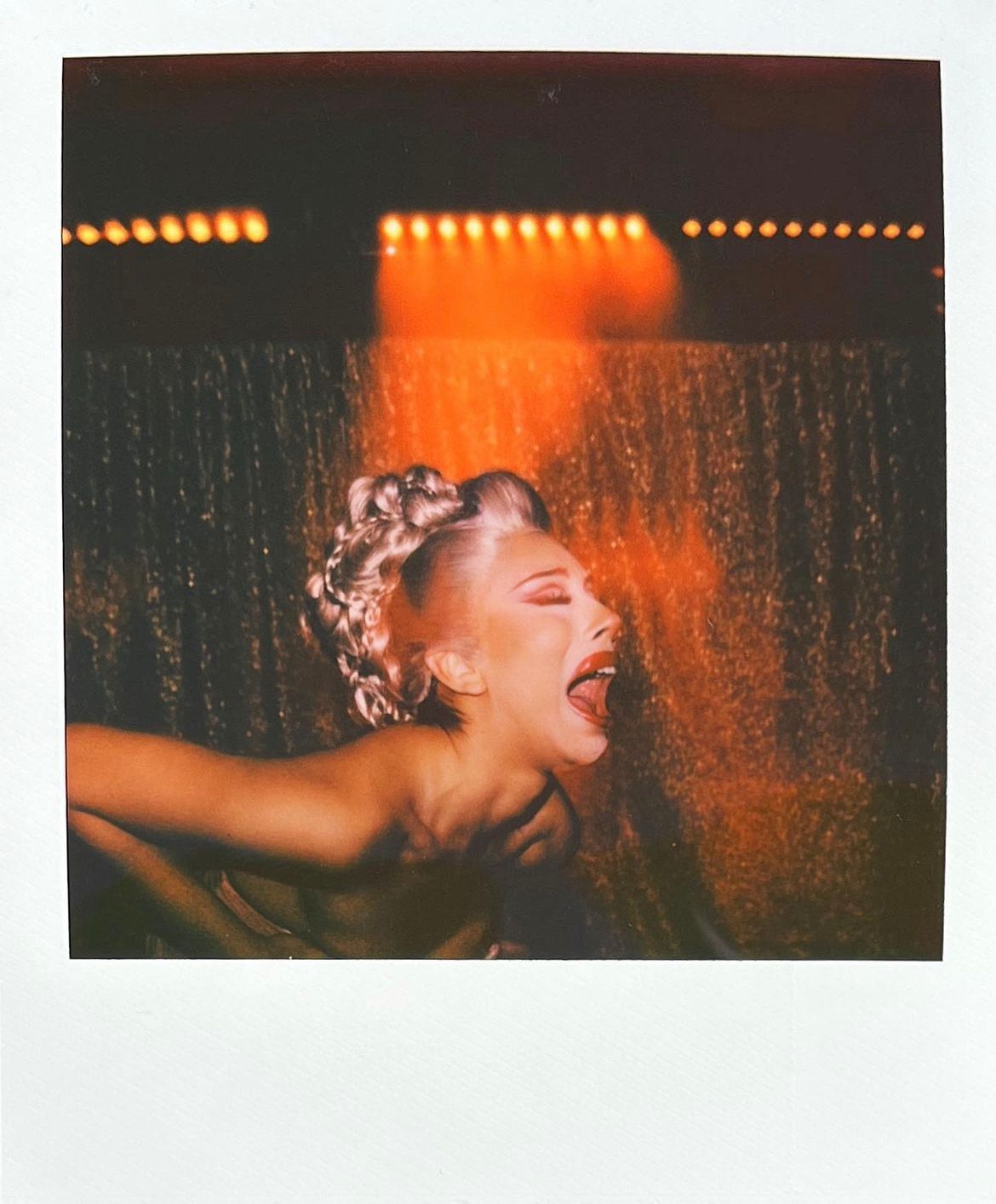
“I always had a camera when I was younger,” he said. "I loved taking photos, but it really wasn’t until COVID that I got more into my photography. I had a lot of time on my hands, so I made a mission to take at least one Polaroid a day for a year.”
Since the days of COVID lockdown, Rudewicz has gained notoriety across multiple social media platforms with his gritty nightlife film grabs. Jump onto his Instagram and see folks like Idina Menzel, Julie J. and a multitude of adult film stars simply living their best lives from Bed Stuy to Bushwick.
“I've done a lot of event photography, and that's kind of how I got a following because of all the drag queens,” he said. “It started clicking to me [that I was having an impact] when I'd hear queens and others say, ‘Oh my god, I got a Rude Polaroid!’ It was so flattering.”
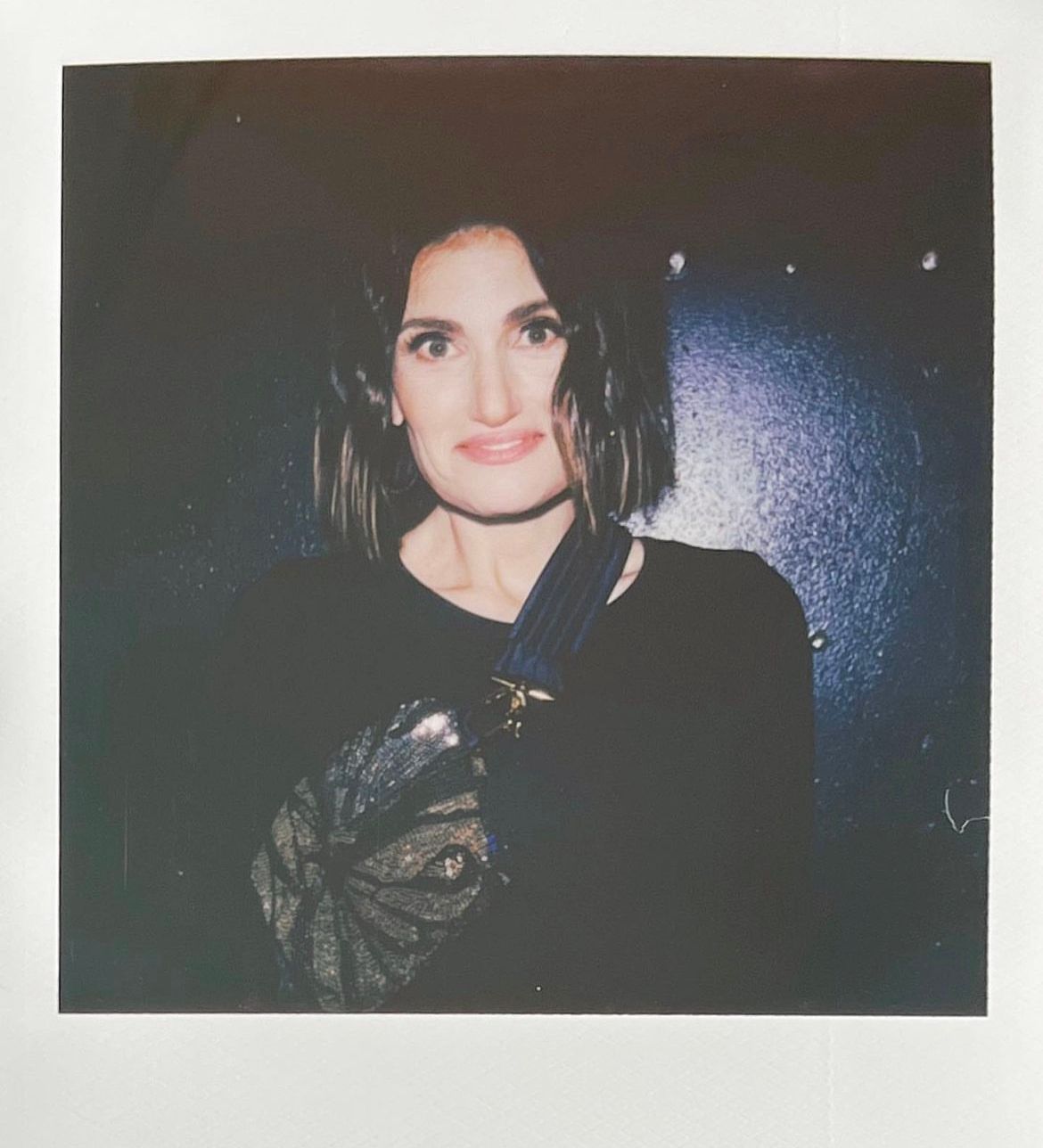
And with that simple phrase, the Rude Polaroid brand was born. Obviously, the “Rude” comes from the photographer’s last name Rudewicz. When he was growing up, all of his siblings had the nickname “Rudy,” but for some reason, that never stuck with this Polaroid queen.
“So now, I'm ‘Rude,’ he said. “Back during quarantine, as I was getting more serious about my work, it just came to me one day, so I changed my Instagram handle [to reflect this developing brand].
Many queer individuals find inspiration in drag queens, who serve as muses and role models for us (don't forget to tip your queens, girlies!). Julie J. holds a special place in Rudwics' heart, as she was one of the first Polaroid shots he captured in 2021. He was captivated by the photo because he hadn't even noticed the striking coincidence: She was standing in front of a tall tree and the branches artistically looked like her hair. Such moments of serendipity make for unforgettable photographs.
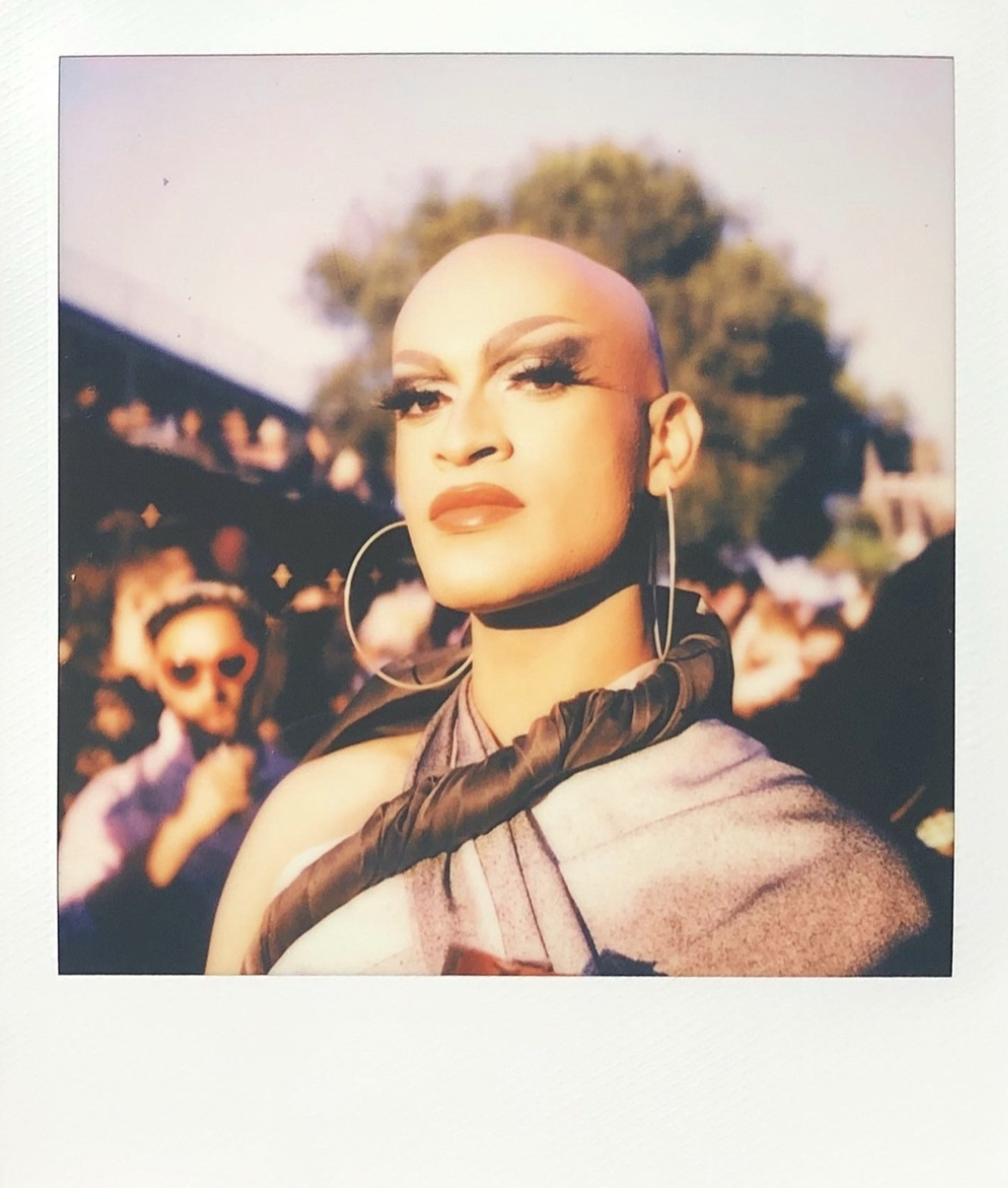
“I would watch her lip sync a telephone book — she's a genius,” Rudwics laughed. “And what's so amazing about her is that she just connects with each person in that room and she's looking directly at you when she's performing.”
Apart from his activities in nightlife and drag scenes, he also provides exclusive sessions for individuals, couples, and anyone seeking a "Rude Polaroid" or two. Whether it's intimate nudes as thoughtful birthday presents, fresh content for adult film stars, or simply desiring tasteful nudes, Rudwicz customizes his photoshoots to suit each individual's unique preferences.
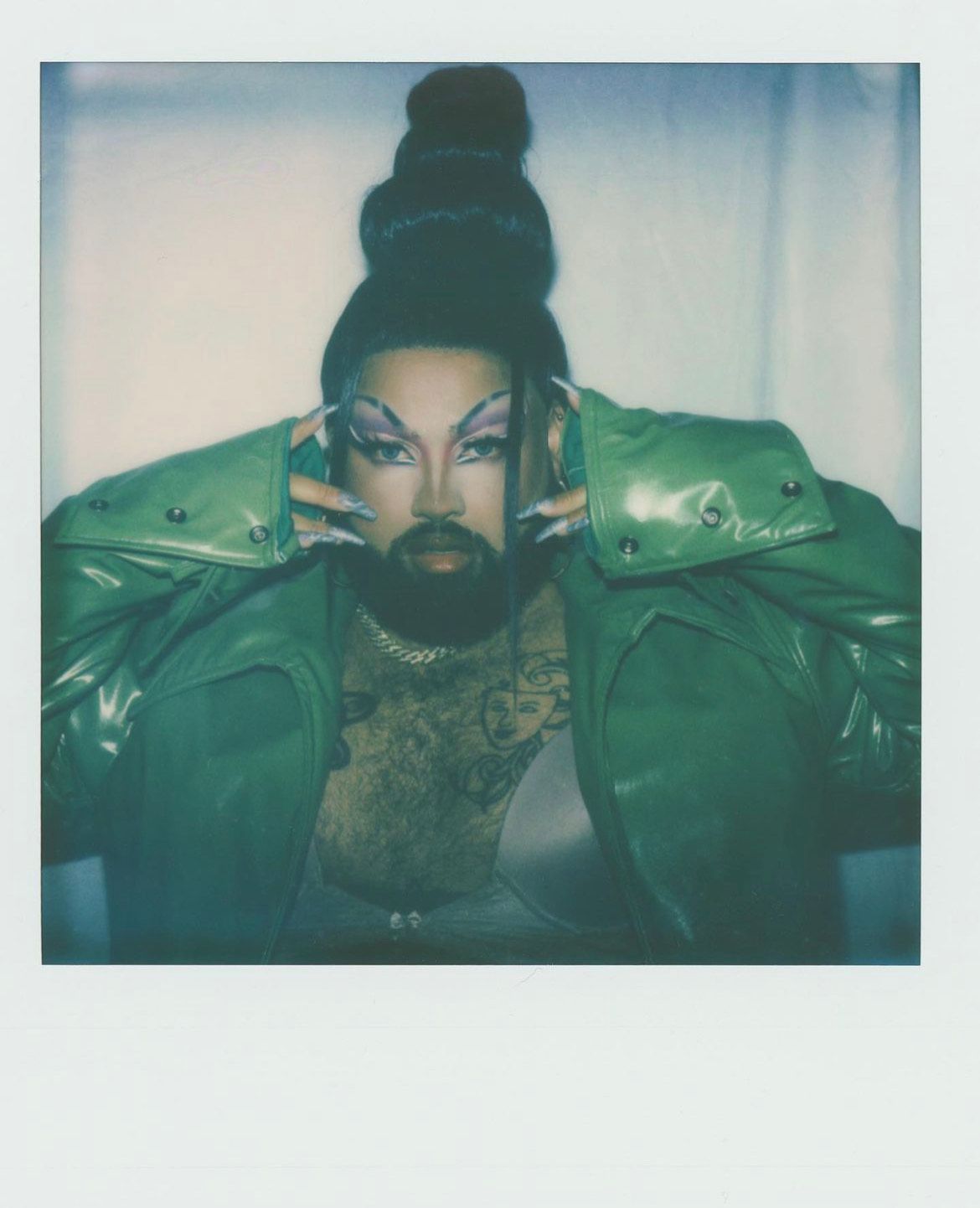
Potential clients will contact Rudewicz and know exactly how they want to tell their story, but oftentimes, they will tell him that they’ve never done a nude shoot and are “petrified” of the experience.
“During COVID lockdown, and being stuck in the house for like two years, I discovered my sexuality more, and who I am, and what I like, what I don't like, what I've never done, and I found a lot of people have been feeling that way or have been more open to exploring,” he said. “People want to step outside of their comfort zone, but are scared and I honestly love those people more because I find that after the shoot, they're just so free and happy and I hope they're happy with the photos.”
He also believes that there is something about the Polaroid that immediately offers comfort, safety and privacy to clients. Having the image immediately handed to a client, instead of up in the cloud, creates a sense of “this is for me and who I choose to share it with.”
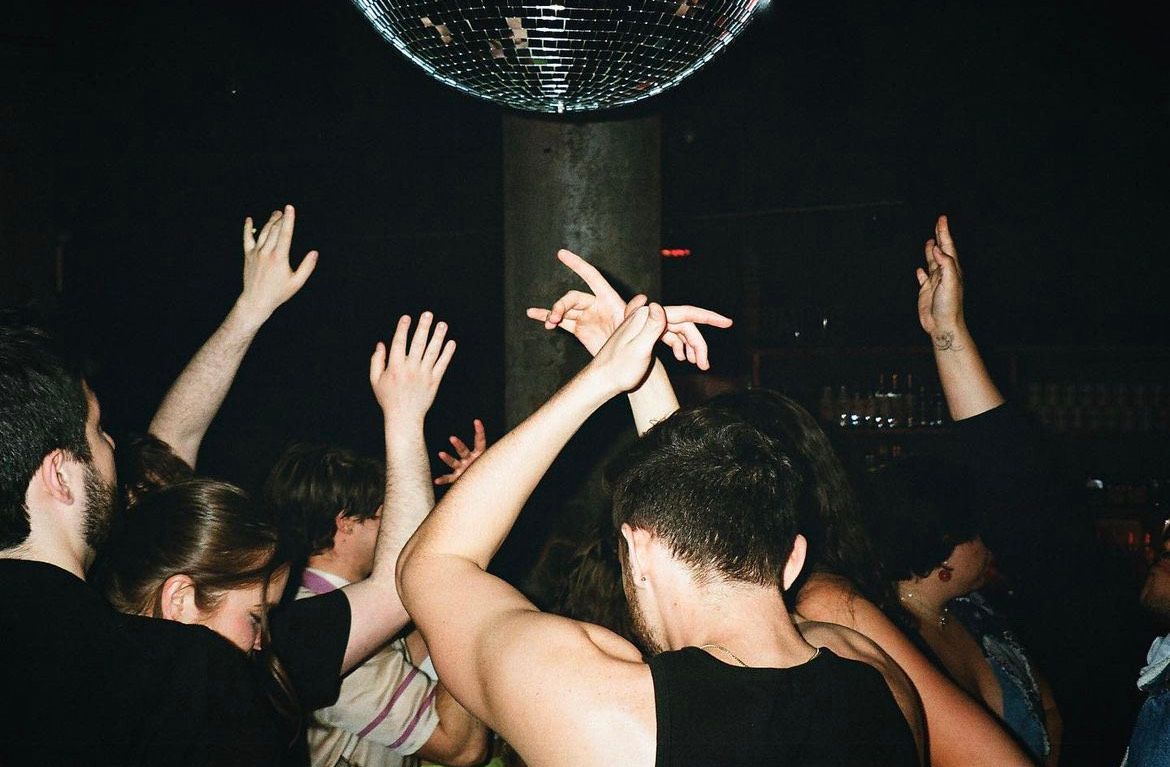
All of Rudewicz’s events and client work have led up to every artist’s favorite: curating art with no one else’s input or monetary influence. He is finding himself becoming more intentional about how he tells queer stories through film. The days of event photography and private sessions will continue, and he’s dipping his toe into the finer side of art.
“I have ideas and images that I want to show people kind of what my eye is creating, and I want to do that without going into someone else's space,” he said.
Although he has a full-time gig elsewhere, he is working to make queer storytelling his entire life, the “Rude” way.
“I would love to take photos full time and not have a day job,” Rudwicz said. “If I had no day job and all the money in the world. I would just travel all across America first, and go to every queer bar that there is just so that I could document each and make a book. I would love that because they are sacred spaces and there's just so much history behind all of them, even new ones.”
Starting August 25 and ending Sept 4, Rudewicz will be displaying some of his 35mm film prints and of course, Poloroids, for his first gallery show in Provincetown, Mass., at Studio Lacombe (237 Commercial St.). The show is entitled Rude Polaroids: “Really Ryan???”
The LGBTQ+ community is full of storytellers and Rudwicz is one of the many to continue the legacy of capturing queer history through art. He still pinches himself over the thought of becoming a full-time artist.
"I mean it doesn't feel 100% real," he said. "You mean I can take my gay little photos and people want to buy them?? That's really special."

